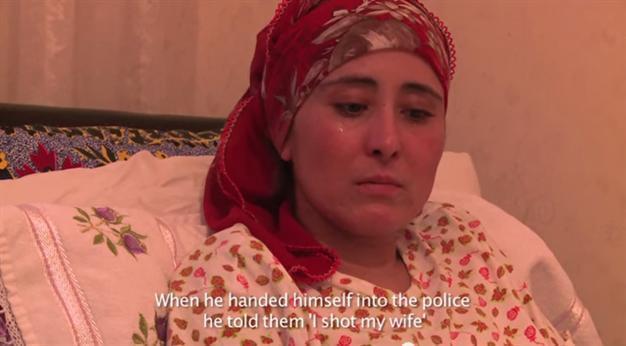VIDEO: Loopholes in Turkey's domestic violence laws new focus for advocates
Christina Asquith*
 After shooting his wife six times in the arms and legs, the husband of Arzu Boztaş turned himself into police. He claimed he lost his temper in the moment and his wife provoked his rage. Later, he sent a message to his wife as she recovered in bed. “He said I’d better drop the case,” she recalls. “I said, give me back my arms and my legs.”
After shooting his wife six times in the arms and legs, the husband of Arzu Boztaş turned himself into police. He claimed he lost his temper in the moment and his wife provoked his rage. Later, he sent a message to his wife as she recovered in bed. “He said I’d better drop the case,” she recalls. “I said, give me back my arms and my legs.” Nearly 300 women were murdered in Turkey last year, yet advocates say Arzu’s case represents the emergence of a chilling new pattern: men who learn of loopholes in Turkey’s domestic violence laws and plan their attacks with the intention of landing reduced sentences.
While strong domestic violence laws have been in place in Turkey for more than a decade, advocates have honed in on the loophole that allows male judges to cite a woman’s so-called provocative clothing or behavior as a reason to reduce punishment, occasionally only to a few years.
Advocates are calling for an additional article on Turkish penal code so that women homicides can be counted as a “major crime” and a longer sentence is required.
The February murder of 20 year old Özgecan Aslan called attention to sentencing in violence against women cases, as millions united in calling for the maximum sentencing for her attackers- even the death penalty. President Recep Tayyip Erdoğan joined the call by promising the toughest sentence to be implemented. Yet advocates say this is the exception, not the norm.
Arzu has lost both legs in the shooting, and is struggling with surgeries now to keep her arms. “We Will Stop Women Murders” is attempting to raise money for her privately and through the government to get her prosthetic limbs.
As Arzu’s case moves to trial next month, volunteer activists have rallied by her side to ensure her husband does not get off lightly, which they fear will send a message to other abusers. They are advising her and her lawyer on domestic violence laws, keeping up a media campaign, and protesting outside the courtroom.
Arzu’s husband awaits trial in prison and is not available for comment.
“The husband’s family is now calculating that he will be released in two years,” says Melda Onur, a parliamentarian who has taken up Arzu’s case and legislation to tighten domestic violence laws. “That’s their account. Can you imagine, you’re putting somebody into grave while she is alive and you are sentenced to two years only?”
* Christina Asquith is a journalist based in Istanbul and author of "Sisters in War: A Story of Love, Family and Survival in the New Iraq."
















